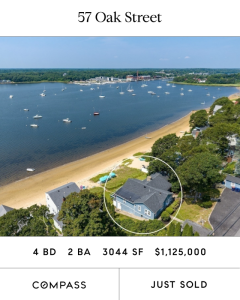Opinion: Join the Great Purple Army for Pancreatic Cancer Awareness
Oct 12, 2023
November is Pancreatic Cancer Awareness Month and Thursday, November 16th is World Pancreatic Cancer Day 2023! I implore all who read these words to take positive action to fight what is the second deadliest form of cancer in Massachusetts, behind only lung cancer. Purple is the color of pancreatic cancer awareness and I ask you to please shine a purple light throughout the month.
Official public commemoration for pancreatic cancer includes actions by Mayor Jon Mitchell of New Bedford, who will issue a proclamation honoring November as Pancreatic Cancer Awareness Month and the Dartmouth Select Board has the matter on its agenda for Monday, October 30th. Dartmouth issued such a proclamation in 2022. A proclamation has been requested of Governor Maura Healey, in hopes that she will continue the tradition established by her predecessor, Gov. Charlie Baker. In recent history, New Bedford City Hall is lit purple for awareness as well as various bridges of the Massachusetts Department of Transportation (MassDOT). These bridges include, construction permitting, the Braga Bridge of Fall River/Somerset, the Zakim Bridge & Longfellow Bridge in Boston, the Fore River Bridge in Quincy/Weymouth, and the Burns Bridge in Worcester.My father, Norman Cordeiro of Dartmouth, is just one local example of these statistics. My dad was diagnosed with pancreatic cancer in September 2013, underwent failed surgery (a Whipple Procedure) in October 2013 at Massachusetts General Hospital in Boston and died on March 30, 2014, at St. Luke’s Hospital in New Bedford. He was 66 years old and 5 days short of his 44th wedding anniversary.
My personal efforts to raise awareness including coauthoring An Act to reduce incidence and death from pancreatic cancer (House Bill 2182/Senate Bill 1330, in the 2023-2024 legislative session) with Marc Hymowitz, Government Relations Director, of the American Cancer Society Cancer Action Network of Massachusetts (ACS CAN). This bill is considered priority legislation by ACS CAN and has the vigorous support of the Boston affiliate of the Pancreatic Cancer Action Network (PanCAN). An Act to reduce incidence and death from pancreatic cancer will implement the recommendations of the final report of the Special Legislative Commission to Study Pancreatic Cancer. I established and served as the Chair of the 15-member Commission, which included three pancreatic cancer surgical specialists, cancer survivors and caregivers (including members of both PanCAN and ACS CAN), the Chairs of the Joint Committee on Public Health, the Undersecretary for Health and Human Services, and other government officials. We met from February – October 2019 and our report may be found at https://www.mass.gov/orgs/the-special-commission-to-study-pancreatic-cancer.
I want to acknowledge, and to profoundly thank, several elected officials throughout the SouthCoast and beyond for their support of An Act to reduce incidence and death from pancreatic cancer. During the last legislative session, the bill earned 77 cosponsors and a favorable recommendation of the Joint Committee on Public Health, before hitting the legislative logjam late in 2022 within the Joint Committee on Health Care Financing. An Act to reduce incidence and death from pancreatic cancer was refiled in January 2023 and it currently has 93 individual, bicameral, and bipartisan cosponsors! The bill also has the support of other legislators who traditionally do not publicly endorse legislation due to their leadership position. Locally, Dartmouth’s own Representative Chris Markey and Senator Mark Montigny are cosponsors, as well as every state legislator from Greater New Bedford and almost every member from throughout the SouthCoast and Bristol County! The lead cosponsors are Sen. Joanne Comerford for S.1330 and Reps. Carmine Gentile and Hannah Kane for H.2182. An Act to reduce incidence and death from pancreatic cancer had its public hearing at the State House before the Joint Committee on Public Health on May 4, 2023, and now we await favorable action. Fighting pancreatic cancer is indeed a nonpartisan endeavor and as purple is the color of pancreatic cancer awareness, we have a small army of Blue (Democrats) & Red (Republicans) working together for Purple advocacy and activism!
In recent years, we have lost several high-profile individuals to pancreatic cancer. To name just a very few, those include Supreme Court Justice Ruth Bader Ginsburg, Senator Harry Reid, Congressman John Lewis, Congressman Alcee Hastings, Alex Trebek, and Aretha Franklin — among very many others who are too numerous to list.
However, not all is bleak! There is hope! When my dad developed pancreatic cancer the survival rate was only 6% but it reached double digits 2 years ago and increased another percent this year. Things are progressing but ever so, and far too slowly! Federally, funding for pancreatic cancer research has increased. Private research funding for such things as genetic testing and precision medicine is growing thanks to groups such as ACS CAN, PanCAN, and the Lustgarten Foundation.
Locally, throughout Massachusetts, and across the United States of America – We, the People – are leading the way to better patient outcomes – for survival – by serving as a Great Purple Army marching forward carrying the banner of pancreatic cancer awareness. Let us continue being bright purple lights dispelling the darkness! THANK YOU to everyone for your support!
Sincerely,
Dartmouth
Event Date
Standard Post


























